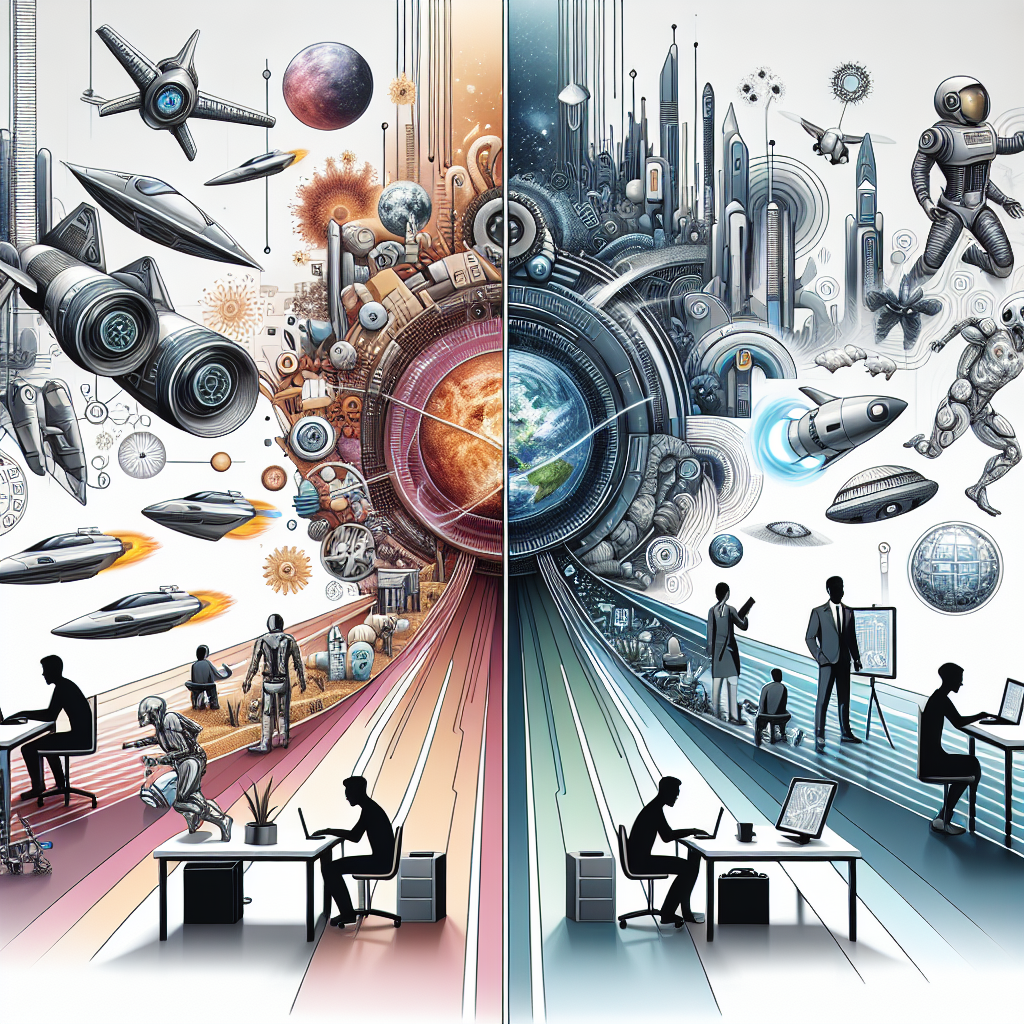From Sci-Fi to Reality: How AGI is Transforming Society
Artificial General Intelligence (AGI) has long been a staple of science fiction, portrayed as a futuristic technology that could revolutionize society. However, in recent years, AGI has moved from the realm of fantasy to reality, with significant advancements being made in the field of artificial intelligence. AGI is the next step beyond narrow AI, which is designed to perform specific tasks, and promises to bring about a level of intelligence and problem-solving ability comparable to that of a human.
AGI has the potential to transform society in a multitude of ways, from healthcare and transportation to education and entertainment. In this article, we will explore the impact of AGI on society and how it is shaping the future of technology and innovation.
The Rise of AGI
The concept of AGI has been around for decades, with researchers and scientists striving to create machines that possess human-like intelligence. While early attempts at AGI were limited in scope and functionality, recent advancements in machine learning, neural networks, and deep learning have brought us closer to achieving true artificial general intelligence.
One of the key factors driving the development of AGI is the exponential growth of computing power. With the advent of powerful GPUs and cloud computing, researchers now have the computational resources needed to train complex neural networks and algorithms that can mimic human cognitive abilities.
Another significant development in the field of AGI is the emergence of reinforcement learning, a type of machine learning that enables AI systems to learn from their environment through trial and error. This approach has been instrumental in teaching AI systems to play complex games like Go and chess at a superhuman level, demonstrating their ability to adapt and improve over time.
The Impact of AGI on Society
The potential impact of AGI on society is vast and far-reaching, with implications for almost every aspect of human life. Here are some of the key areas where AGI is expected to make a significant impact:
1. Healthcare: AGI has the potential to revolutionize healthcare by enabling more accurate diagnosis and personalized treatment plans. AI-powered systems can analyze medical data and images to detect diseases at an early stage, helping doctors make informed decisions and improve patient outcomes.
2. Transportation: AGI can enhance the safety and efficiency of transportation systems through autonomous vehicles and traffic management systems. Self-driving cars equipped with AGI can navigate complex road conditions and avoid accidents, while AI-powered traffic lights can optimize traffic flow and reduce congestion.
3. Education: AGI can transform the way we learn by providing personalized tutoring and adaptive learning platforms. AI-powered systems can analyze students’ strengths and weaknesses to tailor educational content to their individual needs, helping them achieve better academic outcomes.
4. Entertainment: AGI is already being used to create immersive and interactive experiences in the entertainment industry. Virtual reality games, chatbots, and AI-generated music and art are just a few examples of how AGI is reshaping the way we consume and engage with media.
5. Finance: AGI has the potential to revolutionize the financial industry by automating trading, risk assessment, and fraud detection. AI-powered algorithms can analyze vast amounts of financial data in real-time to make faster and more accurate decisions, improving investment strategies and reducing operational costs.
FAQs
Q: What is the difference between AGI and narrow AI?
A: AGI is designed to perform a wide range of cognitive tasks at a human-like level, while narrow AI is limited to specific tasks or domains. AGI has the ability to learn and adapt to new situations, whereas narrow AI is pre-programmed to perform a specific function.
Q: How close are we to achieving AGI?
A: While significant progress has been made in the field of AI, true AGI is still a long way off. Researchers are still grappling with the challenges of creating machines that possess general intelligence and consciousness, and it may take several decades before AGI becomes a reality.
Q: What are the ethical implications of AGI?
A: The development of AGI raises a host of ethical concerns, including issues related to privacy, bias, and job displacement. It is crucial for researchers and policymakers to address these ethical considerations to ensure that AGI is developed and deployed responsibly.
In conclusion, AGI has the potential to transform society in profound and unprecedented ways, revolutionizing industries and reshaping the way we live, work, and interact with technology. While there are still challenges to overcome in the development of AGI, the future looks bright for artificial intelligence and its impact on society.

